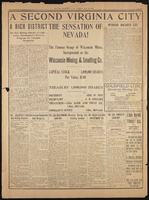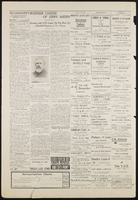Search the Special Collections and Archives Portal
Search Results

Transcript of interview with Joe Burton by Bob Barrera, March 11, 1980
Date
Archival Collection
Description
Text
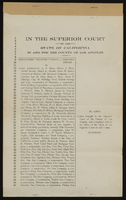
Superior Court of California summons
Date
Archival Collection
Description
Text

Transcript of interview of Thalia Dondero by Mary Germain, March 13, 1976
Date
Archival Collection
Description
On March 13, 1976, Mary Germain interviewed Thalia Dondero (born 1921 in Greeley, Colorado) about her life in Nevada and her experiences as the first female commissioner for the Clark County Commission. Dondero first talks about her upbringing and her eventual move to Southern Nevada. She also discusses her involvement in extracurricular activities, such as being a leader for the Girl Scouts, and how some of those experiences led her to get involved in politics. Dondero also mentions her work with National Geographic and her passion for working with oil paintings and watercolors. The final part of the interview involves some of Dondero’s accounts as a commissioner for Clark County and some of the challenges she has faced in that position.
Text

Interview with Katie McWilliam, July 9, 2004
Date
Archival Collection
Description
Access note: Audio temporarily sealed
Text

Interview with Donald E. English, March 25, 2004
Date
Archival Collection
Description
Text
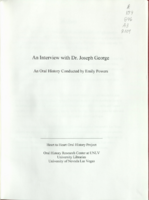
Transcript of interview with Dr. Joseph George Jr. by Emily Powers, April 8, 2008
Date
Archival Collection
Description
Text
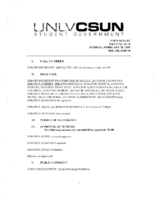
Meeting minutes for Consolidated Student Senate, University of Nevada, Las Vegas, February 28, 2005
Date
Archival Collection
Description
Text

Meeting minutes for Consolidated Student Senate University of Nevada, Las Vegas, May 5, 1988
Date
Archival Collection
Description
Text

